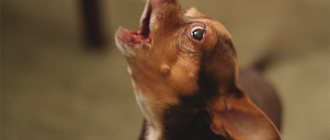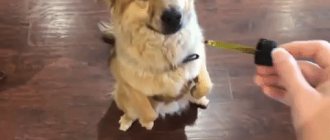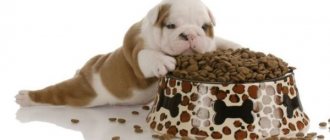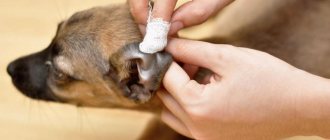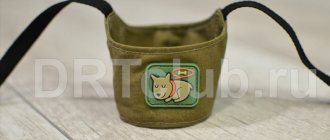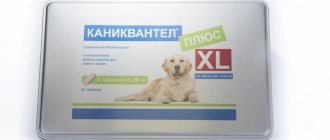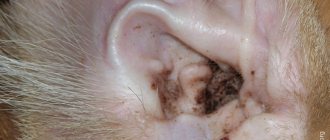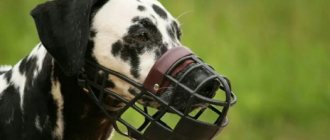As a result of long discussions, all family members came to a common decision and chose the breed of the future four-legged pet. And now comes the most important stage - preparing the house for the arrival of the puppy.
How to organize your life correctly and what should you take care of in advance? Let's look at what advice experienced dog handlers give and look at what you need to give up on the first day of your baby's stay in a new family.
How to prepare your home for buying a puppy
To prevent your baby from being injured and causing serious damage to your apartment or house, you should prepare in advance for his appearance. Experts recommend that owners allocate one room for the puppy. This will allow you to keep the remaining rooms intact until the baby learns the basic rules of behavior in the new home.
You should also remove from the room where the pet will be:
- All small objects that can harm the young inhabitant (paper clips, buttons, pins, etc.). It is important to understand that everything that the puppy can reach will automatically be tested;
- Electric wires. They must be securely placed in a box and preferably out of the baby’s reach;
- Books and magazines. They need to either be lifted onto the shelves of the closet, or simply removed from the coffee table. Otherwise, the owner risks finding many small pieces of paper scattered throughout the room, or books with teeth marks;
- Shoes and wardrobe items. Babies often have itchy teeth or just need new toys. To save the puppy from the temptation to chew on the owner’s boots or slippers, they should not be left within the reach of the young tomboy.
This is important: in order to prepare the safest possible room for a four-legged pet, you need to carefully assess all possible risks to its life and health. Imagine that you have a 7-8 month old baby in your house. Prepare the room in such a way that his stay in it is comfortable and entails as little destruction as possible.
We master the basics of education
There is no point in delaying education. The sooner you start, the fewer problems there will be in the future.
Accustoming to a nickname
Calling is the very first command that a dog learns. It should be used in conjunction with any positive reinforcement: feeding, affection and games. Say the name as often as possible and be sure to reward your pet if it responds.
“How to teach a puppy a name
Is it possible to punish a puppy in the first days in the house?
It is recommended to avoid punishment in the first days. During the adaptation stage, the baby may often walk past the diaper, whine and howl loudly. All these are consequences of stress, so you should not aggravate anxiety with your lectures.
Toilet and hygiene
Before vaccinations, the animal will have to go either in a diaper or in a litter tray. It takes time and patience to get used to these things. Be sure to track where your pet urinates on the first day and place a diaper or litter tray there. After this, try to carry the baby to the diaper or tray every time he sniffs the floor and sits down. Mostly, the urge occurs soon after feeding and immediately after sleep.
“ Read more about how to train a dog to wear a diaper
In addition to toilet training, it is very important to familiarize yourself with basic hygiene procedures: combing, trimming claws, cleaning eyes, ears and teeth. Having become accustomed to them in childhood, an adult dog will be much more comfortable with all these manipulations in the future.
Commands and rules
In addition to learning a nickname, the first commands also include accustoming to a place. Reward your pet when he is there and take him to the bed every time he starts to fall asleep.
It is equally important to immediately establish a set of rules in the house: a ban on begging, picking up food from the floor, biting hands and feet, and sleeping in your bed. Stop unwanted behavior with the commands “No” and “Fuck” and avoid indulgences from other household members.
What not to do
Prohibited acts include any cruelty. Screaming and the use of brute force are not punishments, but reliable tools for destroying relationships and breaking the animal’s psyche.
Why is a puppy's new home stressful?
Not all owners understand that moving to a new family is a real stress for a baby. Until this moment, he had been inseparably with his mother, sisters and brothers in a familiar environment. There were only familiar people, smells and objects around. And quite unexpectedly, he is taken away by strangers who bring him to an unfamiliar house. The puppy has no protection from the unknown. Therefore, the baby may whine, worry, or look for a place to be alone.
No matter how much you would like to spend maximum time with him, pet him, feed him or play, you still shouldn’t do this. Let your pet get comfortable. Let him sit in the chosen shelter. You should not pull him out by force or interfere with his attempt to hide from others. Gradually he will get used to it and will be happy to seek your company for joint games, walks and pastime.
We care about health
To maintain the health of your four-legged pet, you should follow a number of preventive recommendations. The most important of them are vaccination and antiparasitic treatment.
Vaccinations
The first vaccination against hepatitis, enteritis, parainfluenza, leptospirosis and distemper is usually given by the breeder himself. It occurs for 2-2.5 months. After 21-28 days, the puppy is revaccinated. For convenience, they arrange it so that the revaccination coincides with the time of rabies vaccination. Then the animal is vaccinated once a year.
Treatment for parasites
Treatment for worms is carried out every quarter, and for external parasites (fleas, ticks, lice eaters) - as needed. All funds are selected individually.
Finding a veterinarian
In addition to vaccinations and preventive examinations, a veterinarian may be required in various force majeure situations. For this reason, it is better to look for it in the nearest veterinary clinics.
At the first appointment, be sure to ask the doctor about the breed characteristics of your pet and the medications that need to be added to the previously purchased first aid kit. If he doesn't mind, take his contact number in case you have questions in the future.
Where and how to arrange a place for a puppy
In order for the puppy to get used to the house as quickly and efficiently as possible, it is important to properly equip its future place. Dog handlers recommend choosing a place for a puppy in such a way that it meets several criteria:
- Be located away from drafts, heating radiators, and places where family members constantly walk. The baby should be comfortable and cozy. It should not be forced to constantly rise to make way for the owner or other occupants of the house;
- The rug or bedding chosen by the owner must be made of non-staining material and can be easily washed using detergents.
When choosing a house-shaped bed, consider the size of your pet and how quickly it will grow. Of course, it’s not worth purchasing a bed that fits the size of an adult animal. But you shouldn’t choose a model that exactly matches the parameters of a 2-3 month old pet either. After a couple of months, the bed will become small and you will have to visit the pet store again.
The entrance to the dog bed should be comfortable for the pet. If the baby is forced to perform acrobatic acts to get to his place, then there is a high probability that the pet will refuse to use such a house.
In some cases, breeders fence off part of the room, turning it into an enclosure for puppies. This is a good way to save the rest of the house from inevitable destruction. The more attentive the owner is in preparing a place for his four-legged friend, the greater the chance that the puppy will appreciate the comfort and convenience of his bedding.
Holding a puppy in your arms all the time - won't it harm him?
The puppy must receive a certain dose of activity. Constantly carrying it in your arms is harmful, since the puppy will lag behind in its muscle development. In practice, if the puppy does not walk on his own, but is constantly carried in his arms, you should contact a veterinarian; perhaps the pet already has motor abnormalities.
Excessive sleepiness of your little four-legged friend should not be confused with lack of activity. It only takes a small dog to run around the apartment for a short time before he wants to sleep. Over time, his body will get stronger and he will need more and more walking.
Remember, dogs require a lot of attention. If you bring a puppy at home, consider that you have a child and a full-fledged member of the family. While he is small, you can often carry him in your arms, but gradually teach him to walk on his own. When you carry a puppy in your arms, hold him correctly, never putting pressure on his tummy.
How to calm a puppy on the first day in a new home
In the first few hours after the change of owner, the baby experiences severe stress. The owner’s task is to create the most safe and comfortable environment in the new home. The advice of experienced dog handlers and professional breeders helps with this:
- Ask the previous owner for a small piece of bedding or a piece of cloth on which the puppies lay. It is saturated with the smell of the baby's mother and will be a good sedative.
- Make sure you have a soft toy in advance. You should take her with you to the breeder. Rub the toy on the bitch's belly. Thus, the fabric is saturated with familiar aromas and will allow the baby to feel calmer in a new environment;
- Agree with the breeder to tell you in detail about the diet and taste preferences of your four-legged pet. Find out what treats your puppy likes and what foods he absolutely refuses. Offer your baby his favorite treats. This will make him feel more confident.
- Don't let children turn your pet into a toy. The baby needs a calm environment. Let him sniff his new possessions, sleep, and eat. And he will come out to people only after he has a need for communication.
- During the first nights, it is better to let the pet sleep on its own bedding, but next to its owner. Most dogs whine from loneliness and sadness. Don't scold your baby. If you placed his bedding next to your bed, then lower your hand and caress your pet. Give him a toy that smells like his mother, or a bedding cloth taken from the former owner's house. Prepare in advance for the fact that the puppy may whine for 1-2 nights. Then he will get used to it and behave calmer.
Common names for dogs
After the airing of some films, dog names became popular: Mukhtar and Hachiko. Some people prefer to name their pets their favorite characters from books. This could be Totoshka, Zeus, Bonya, Spikey, Basya and others.
Foreign names of people by which pets are called in our country have gained some popularity. For example, Roxy, Adele, Greta, Susie, Charlie, Teddy, Dick and so on.
If you want your pet to be special, don't give it standard names. Frequent and well-known names to some extent disturb pets because they may be called by strangers.
Safe toys
Bored kids can literally destroy a house. Everything flies: furniture, wires, wallpaper, plaster... A small puppy who does not yet know how to direct his energy in the right direction should not be left alone. If you must do this, be sure to leave toys to keep the animal occupied.
- Rubber toys should be without a squeaker (a puppy can swallow it) and molded, non-hollow. The dog will chew the “pacifier” and try to eat it. It may even lead to surgery. Rubber rings and balls work great. In extreme cases, you can replace the toy with a hard treat that will take a long time to chew.
- You should not give your puppy ropes and threads, because he will certainly decide to eat them.
- The size of the toy should be such that it can be grabbed, but not swallowed.
- If your baby begins to lose interest, hide a few items for a week. When you give them again, the puppy will be happy.
What to take from the breeder
Ask the breeder to give the puppy something as a dowry that reminds him of his home. This could be a small toy or a piece of bedding. Such an object (more precisely, its smell) will help the puppy adapt to the new place and make the new home closer.
Safety
You may not even think about the fact that your puppy may be in danger at home. Here are some of them:
● Electrical wires.
For the first six months, or even a year, the dog will try everything that doesn’t fit well. Wires are especially dangerous in this regard; the baby can get an electrical injury, so they need to be carefully hidden.
● Slippery floor.
During play, the puppy may slip, injure its paws, or hit walls or furniture painfully. If the flooring is slippery, it is better to lay rugs.
● House plants.
They need to be put away in a place where the puppy cannot reach them. Many plants are toxic to pets.
● Small and fragile items.
Remove children's toys and magazines from the floor. A curious puppy can eat them and get poisoned or have an intestinal blockage.

